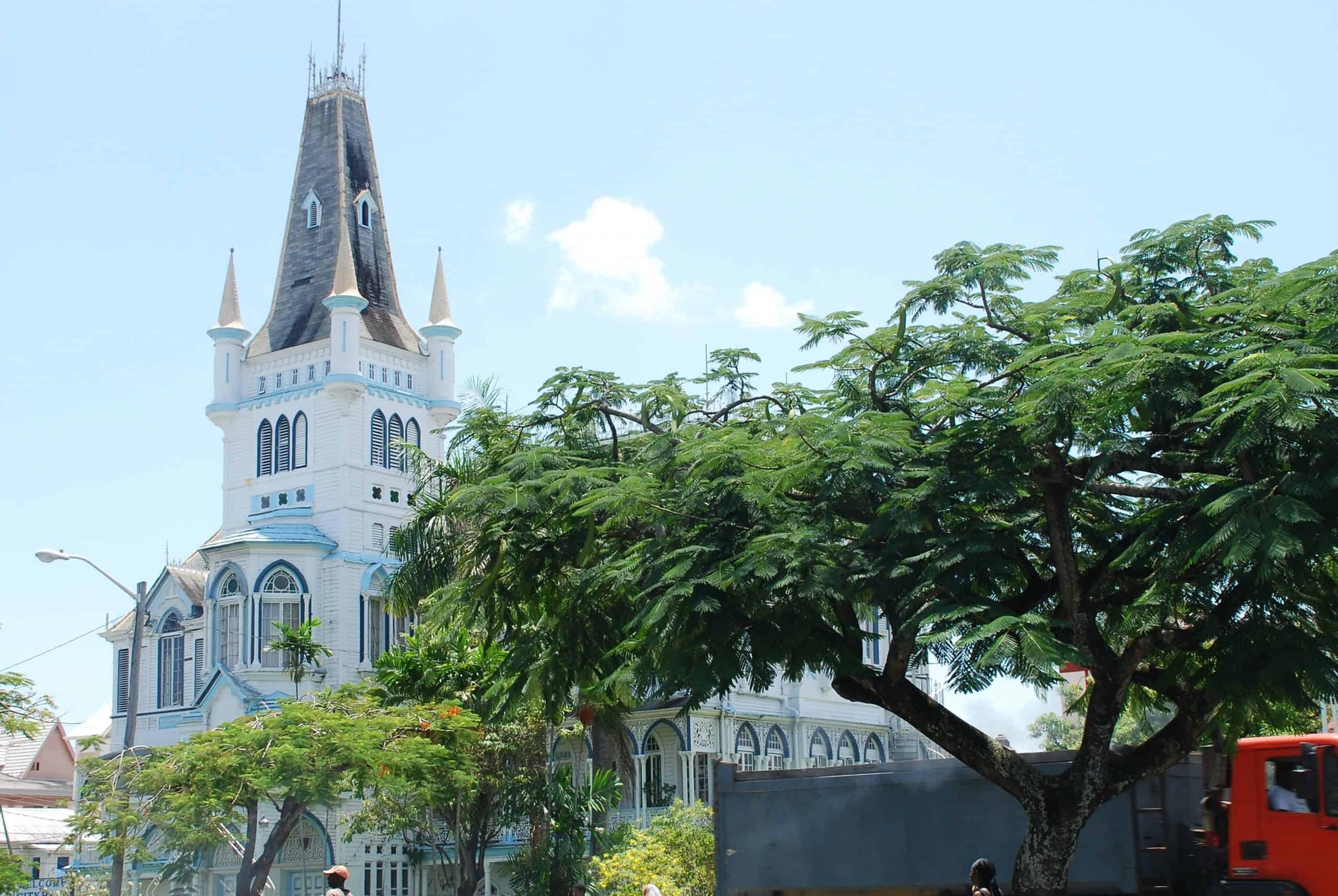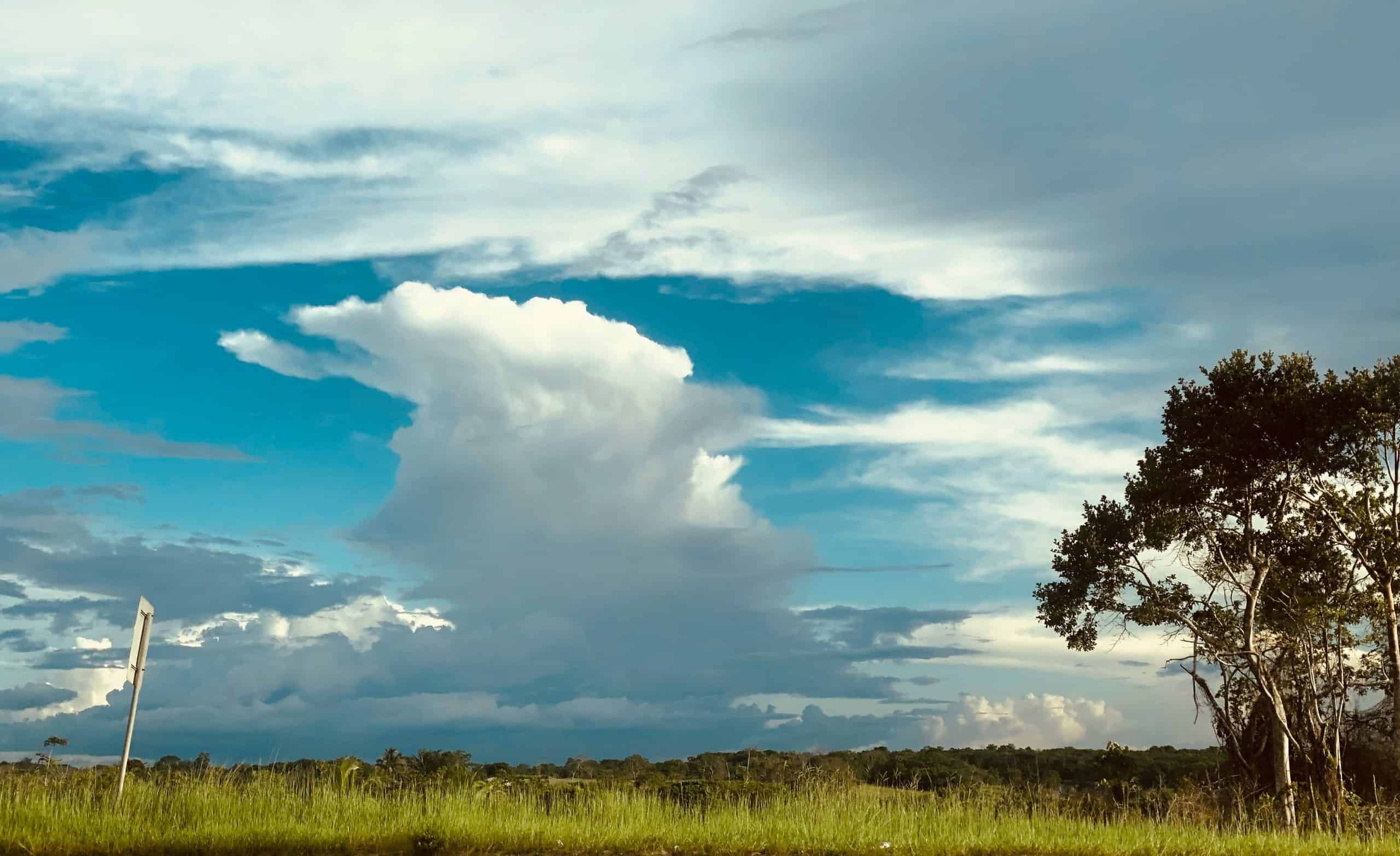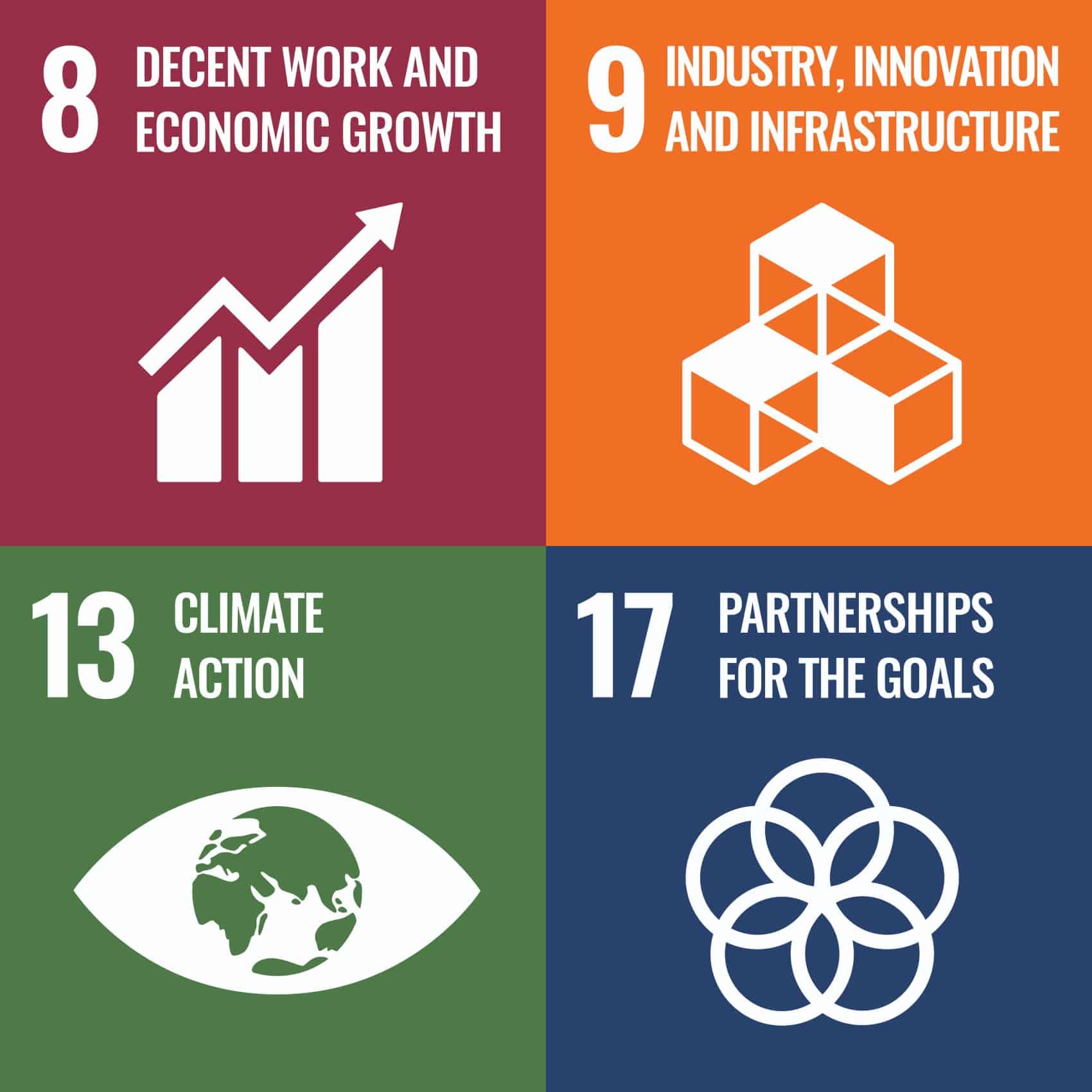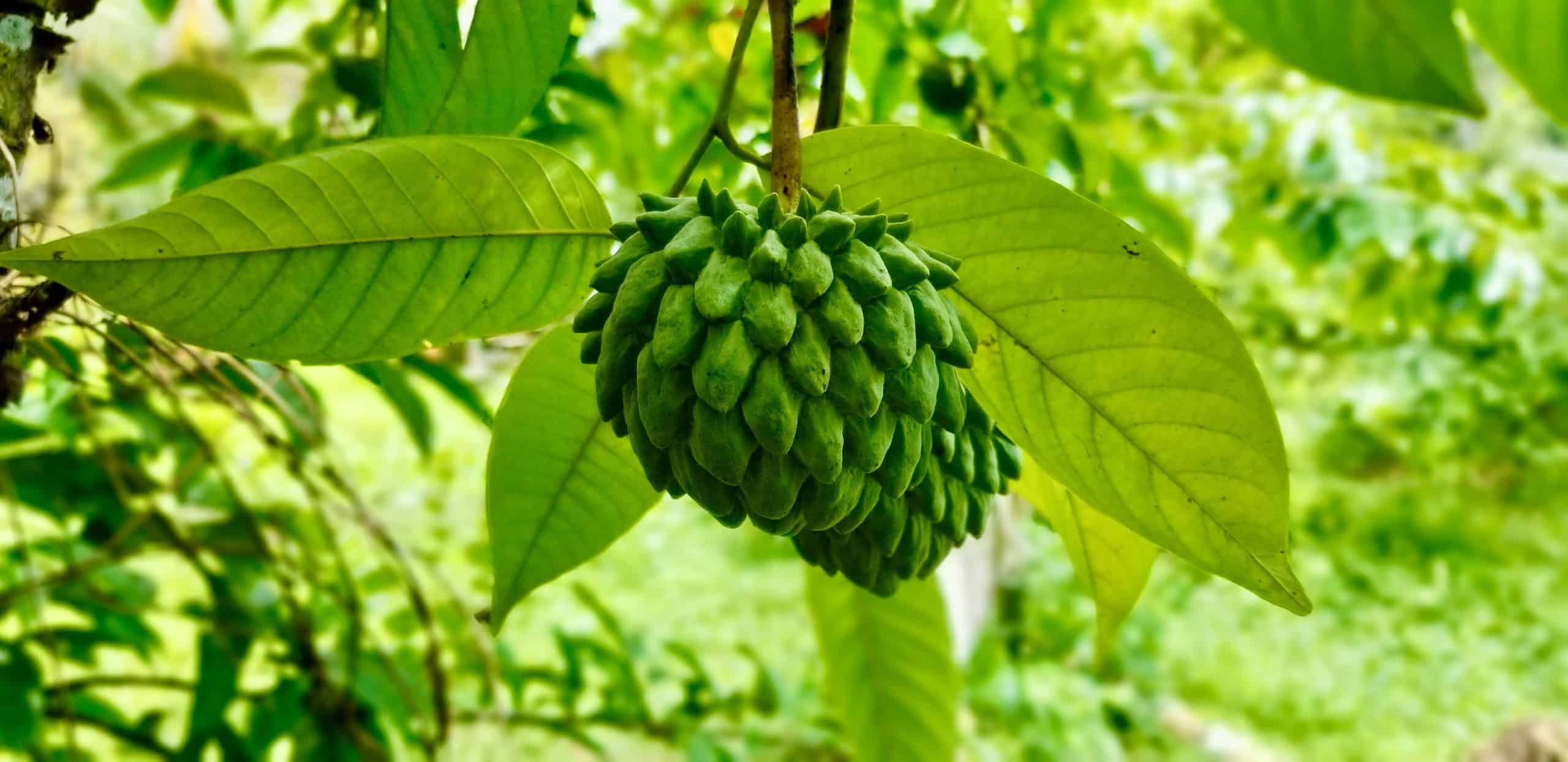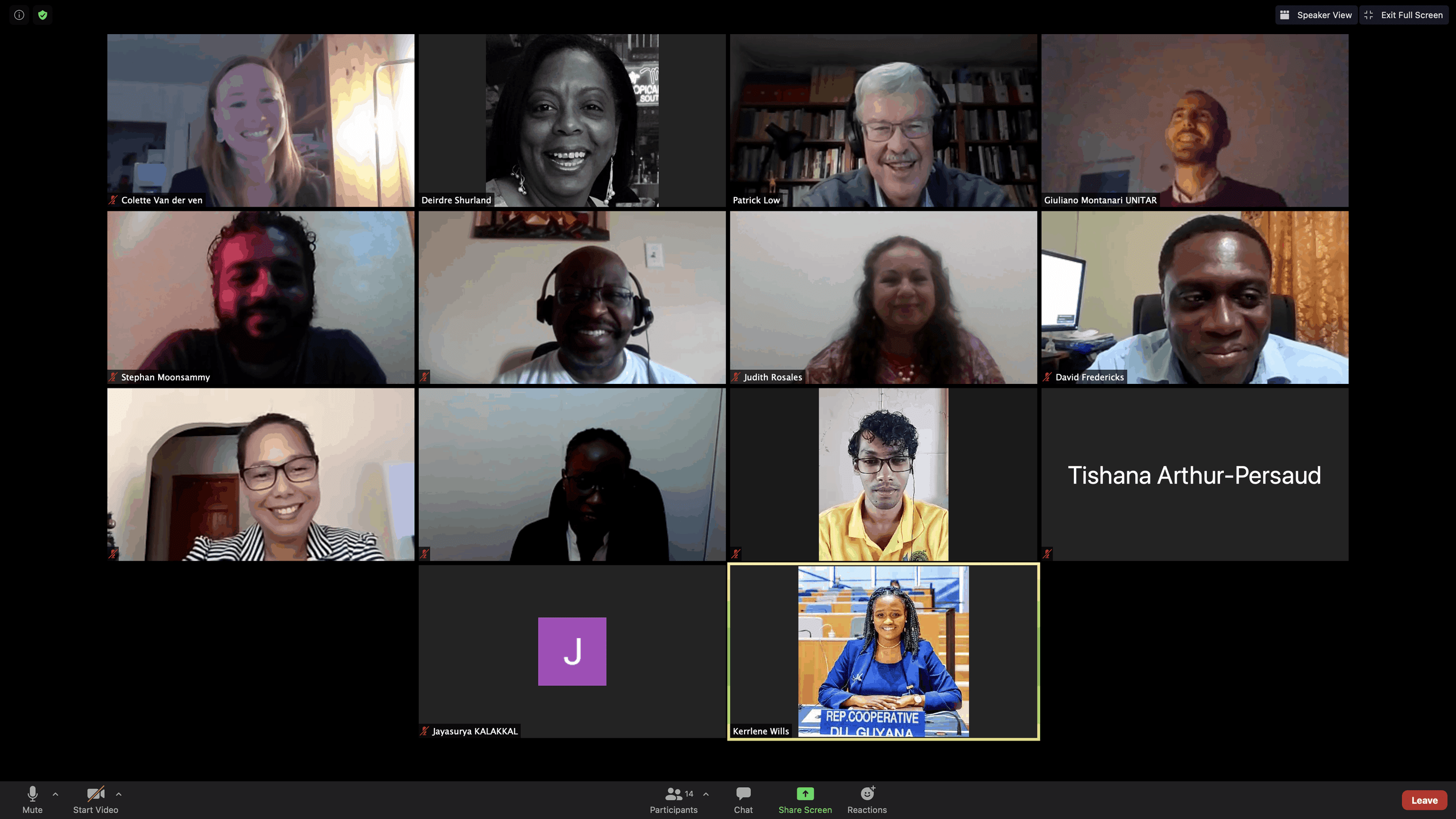Main Navigation
Guyana
Overview
Guyana has set a vision for its national development, which is led by its Low Carbon Development Strategy.
Guyana is an upper middle-income country in South America endowed with natural resources, fertile agricultural land and extensive forests covering around 87 percent of the country. Agriculture and mining are key economic sectors, accounting for 21 and 20 percent of GDP respectively. With an abundance of rivers, the country is susceptible to climate change effects, particularly floods and droughts, and its resource-based economy remains highly exposed to fluctuations in global commodity prices. After the recent discovery of petroleum, oil exports began in 2020. This offers the potential for rapid industrial development and increased revenues but comes with environmental, governance and economic risks.
Taking measures to combat environmental degradation, preserve forest cover and support sustainable development, by committing to low impact, climate resilient development have subsequently become national priorities.
The PAGE partnership with Guyana began in 2017, linking to the development and implementation of its Green State Development Strategy: Vision 2040 and reprised Low Carbon Development Strategy — which acts as a long-term economic and socio-cultural development vision that aligned with the SDGs and Guyana’s Nationally Determined Contribution (NDC).
Sustainable Development
PAGE has supported policy development in Guyana through, among other initiatives, the Guyana Green Economy Modelling Study and building stakeholder and institutional capacities. This has contributed towards the achievement of SDGs 8 (Decent Work and Economic Growth), 9 (Industry, Innovation and Infrastructure), 13 (Climate Action) and 17 (Partnerships for the Goals), as well as Guyana’s NDC, especially as it relates to developing the country’s renewable energy potential.
Priorities for Post-COVID-19 Development
Political instability and the COVID-19 pandemic led to delays in PAGE work in 2020. After a new government took office in August 2020, priorities were set for the next five years, which are in line with its Low Carbon Development Strategy and target COVID-19 response and recovery, job creation, renewable energy, climate mitigation and adaptation and SDGs. Planned PAGE activities are still aligned with these new policy priorities centred around low carbon development, the climate agenda and the SDGs.
In 2020, PAGE Guyana worked with the UN Country Team (UNCT) efforts to integrate sustainability into the response and recovery from the global pandemic — particularly supporting the UNCT’s Finance and Economic Recovery Working Group and the work of the Guyana National Emergency Operations Centre. PAGE Guyana’s work plan has been included in “Macroeconomic Response and Multilateral Collaboration” pillar of the UNCT’s Social and Economic and Response Recovery Plan. Additionally, PAGE support to green economic recovery is included within the new administration’s national budget “Agenda 2020: our plan for prosperity”.
PAGE Milestones
- 2017
PAGE engagement with Guyana announced at the PAGE Ministerial Conference
- 2018
PAGE mission held to define priority areas aligned with the Green State Development Strategy
Four Green Conversations supported drawing over 600 participants
Work on a Green Jobs Assessment Model commenced
Medium-term system dynamics modelling of green economy scenarios carried out
Green Industry Trade Assessment completed
- 2019
PAGE national advisory committee established
Series of high-level events held with ministries, civil society and media organisations during Green Economy Week
Green State Development Strategy officially welcomed by President, with implementation set for 2020
Green Economy Modelling Synthesis Report published on system dynamics green economy modelling
Training held to support model construction and data collection for the Green Jobs Assessment Model under development
- 2020
Final Green State Development Strategy Volume III: “Inclusiveness, Policy Cost Estimates and Monitoring & Evaluation Framework” finalized
New government administration establishes five-year priority in line with reprised Low Carbon Development Strategy from 2013
Scoping study on fiscal policy reforms to support sustainable agriculture commenced
Virtual Green Trade and Industry Policy training delivered
Progress in 2020: A Snapshot
Tracking country progress
PAGE began preparatory work in 2020 with the Ministry of Finance for the development of an online platform to facilitate monitoring […]
PAGE began preparatory work in 2020 with the Ministry of Finance for the development of an online platform to facilitate monitoring and reporting on national development plans and policy targets, which include low carbon development, the SDGs and the goals of the Paris Agreement. In the process, UNDP offices in Jamaica and Chile were engaged for ‘virtual study tours’, linking the Ministries of Finance for South-South knowledge sharing on developing and operating a national monitoring platform.
This work supports the greater development of a comprehensive monitoring and reporting approach for Guyana’s national plans, including the application of the Green Economy Progress Measurement Framework in the context of the Low Carbon Development Strategy and a plan to conduct a Public Green Economy Expenditure Review.
Sustainable agriculture: fiscal policy reforms
In collaboration with the International Institute for Environment and Development, PAGE is supporting analysis on fiscal policies in […]
In collaboration with the International Institute for Environment and Development, PAGE is supporting analysis on fiscal policies in the agricultural sector. A scoping study commenced in September to undertake a sector-wide analysis of fiscal policies to drive an IGE transition with support from the Ministries of Finance, Agriculture and Foreign Affairs. Further, online capacity-building and a fiscal policy strategy and roadmap are planned for 2021, which will directly link to the Agricultural Ministry’s new Sector Strategy 2020-2030.
Sustainability for the fruit and vegetable sector
Building on the findings of the Green Industry and Trade Assessment, PAGE engaged in consultations with the National Agricultural […]
Building on the findings of the Green Industry and Trade Assessment, PAGE engaged in consultations with the National Agricultural Research and Extension Institute of the Ministry of Agriculture to develop efficiency and waste management guidance for the fruits and vegetables value chain, particularly for coconut production. The aim is to stimulate technological innovation, identify new export markets and bring greater benefit to domestic consumers through more sustainable products while fostering low carbon priorities in the sector.
Knowledge for green trade and industry
In early December, a three-day workshop was held under the theme “Building back better in Guyana through green trade and industrial […]
In early December, a three-day workshop was held under the theme “Building back better in Guyana through green trade and industrial policies”, co-organized between PAGE agencies and the University of Guyana. The workshop was designed to build technical knowledge and skills for designing, implementing and evaluating public policy within the nexus of trade and industry. Held for ministry officials, it specifically targeted the achievement of the national sustainability goals in these sectors.

